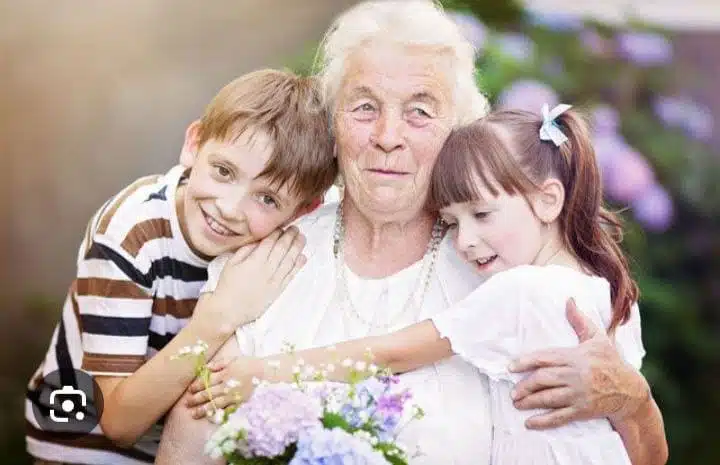
These-Real Life Testimonials were written by people who apply German New Medicine in their daily lives.
I have two children, and both have had separation conflicts from their grandparents. It started with the older one. When he came home, he had itching and red spots on his ears and cheeks. I asked him what had happened when he was in the street with the other children, but he couldn’t remember any events that matched his skin symptoms; there was no separation conflict.
A few days later, my youngest son, too, had itching and red spots in the same place on his ears and cheeks. The following day, I took the younger one to kindergarten. On the way there, all my thoughts revolved around what his separation conflict could have been. When we arrived at kindergarten, we were immediately sent home again because of the risk of him infecting other children with his symptoms. The daycare center thought that his “symptoms” could be very contagious, and requested that I take him to the doctor immediately. I indicated that we would not see a doctor, as it wouldn’t do any good. Instead, he would stay home for a few days until it passed.
On the way home, I began analyzing the separation conflict my two sons might have suffered.
The conflict – The grandparents went on vacation for two weeks. About three days before they returned, we spoke to the grandparents via video link, because the children had already missed them very much. Then, the grandmother said that she also missed her grandchildren and that they would be back soon, and the children would be allowed to stay with them overnight.
The eldest reacted immediately with itchy, red spots on his cheeks and ears after the video call two days earlier, but not the young son, he reacted similarly only two days later.
The conflict resolution – I had taken the younger one to his grandmother’s house immediately after their return from vacation, to let him spend the night there as promised, and everyone was happy. He missed her so much. The next morning, when I picked him up for the kindergarten, there was the itchy red spots on his cheeks or ears. I then decided to drop my eldest off with his grandparents in order to get a dose of “therapy”; he missed them a lot, too.

It is interesting why both children associated the separation on their cheeks and ears. I suspect that the grandparents like to cuddle them, stroke their heads and faces, and hug them. This is why both children associated their separation on cheeks and ears. The younger child’s conflict was not so severe, and the symptoms subsided quickly, but for the older child, they lasted for several days.
The squamous epithelium reacts immediately when a conflict is resolved. Redness and itching are present within a few minutes. Therefore, it is important to shed light on why the older son could resolve his separation conflict with the video call and the grandmother’s announcement that she would be back soon. However, the younger son only resolved it after the grandparents had returned.
Little children and animals can only resolve biological conflicts in real terms, but not intellectually. Adults can also find intellectual substitute solutions if, for example, they realize that the conflict’s content will soon be resolved by itself, even if it has not yet been resolved in real terms. The older son resolved his separation conflict intellectually as an adult; Grandma and Grandpa will soon be back. The younger son, however, needed a real solution to the conflict; he needed his grandparents to be available for real cuddles again.
| Cookie | Duration | Description |
|---|---|---|
| cookielawinfo-checkbox-analytics | 11 months | This cookie is set by GDPR Cookie Consent plugin. The cookie is used to store the user consent for the cookies in the category "Analytics". |
| cookielawinfo-checkbox-functional | 11 months | The cookie is set by GDPR cookie consent to record the user consent for the cookies in the category "Functional". |
| cookielawinfo-checkbox-necessary | 11 months | This cookie is set by GDPR Cookie Consent plugin. The cookies is used to store the user consent for the cookies in the category "Necessary". |
| cookielawinfo-checkbox-others | 11 months | This cookie is set by GDPR Cookie Consent plugin. The cookie is used to store the user consent for the cookies in the category "Other. |
| cookielawinfo-checkbox-performance | 11 months | This cookie is set by GDPR Cookie Consent plugin. The cookie is used to store the user consent for the cookies in the category "Performance". |
| viewed_cookie_policy | 11 months | The cookie is set by the GDPR Cookie Consent plugin and is used to store whether or not user has consented to the use of cookies. It does not store any personal data. |
You’ll be informed by email when we post new articles and novelties. In every email there is a link to modify or cancel your subscription.